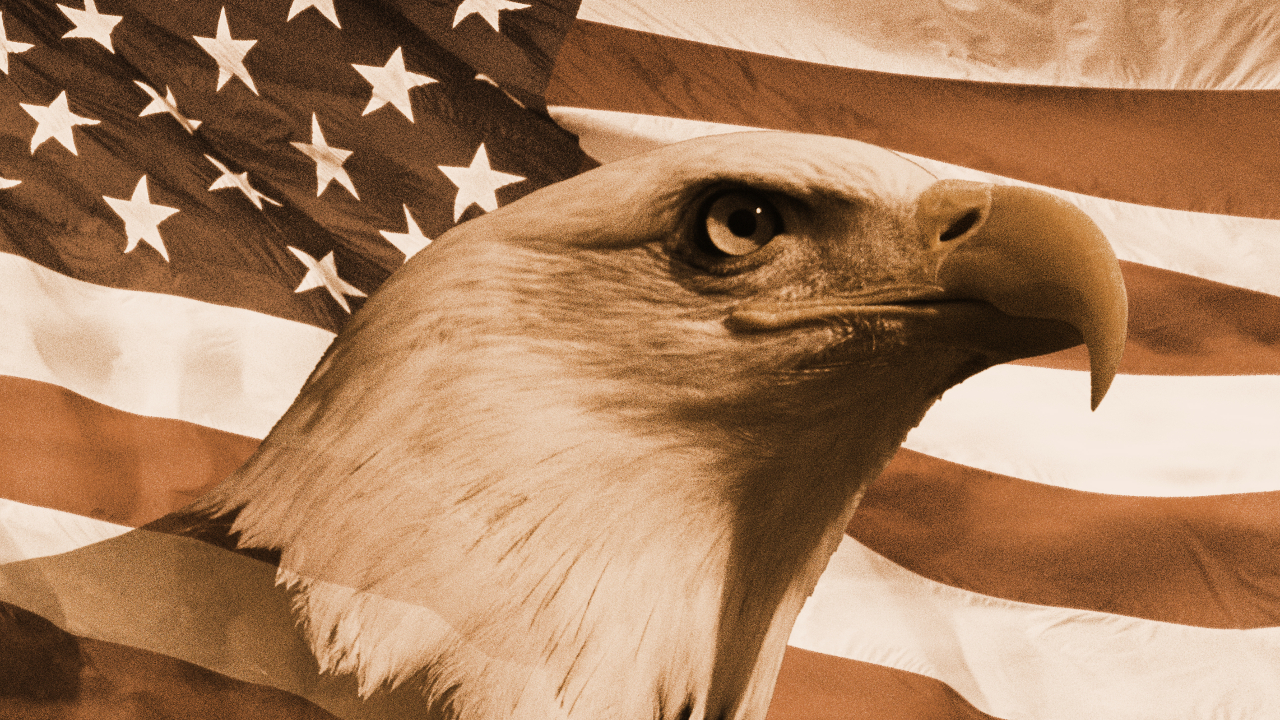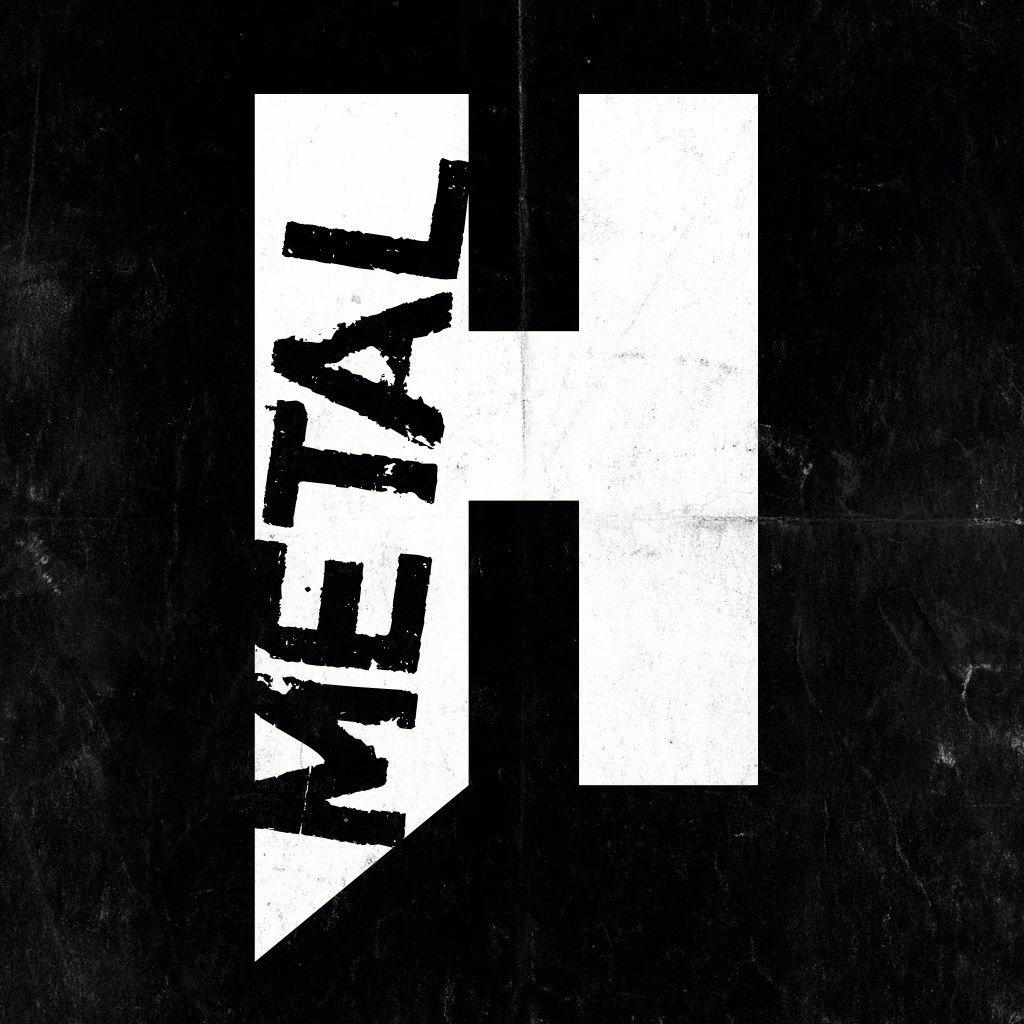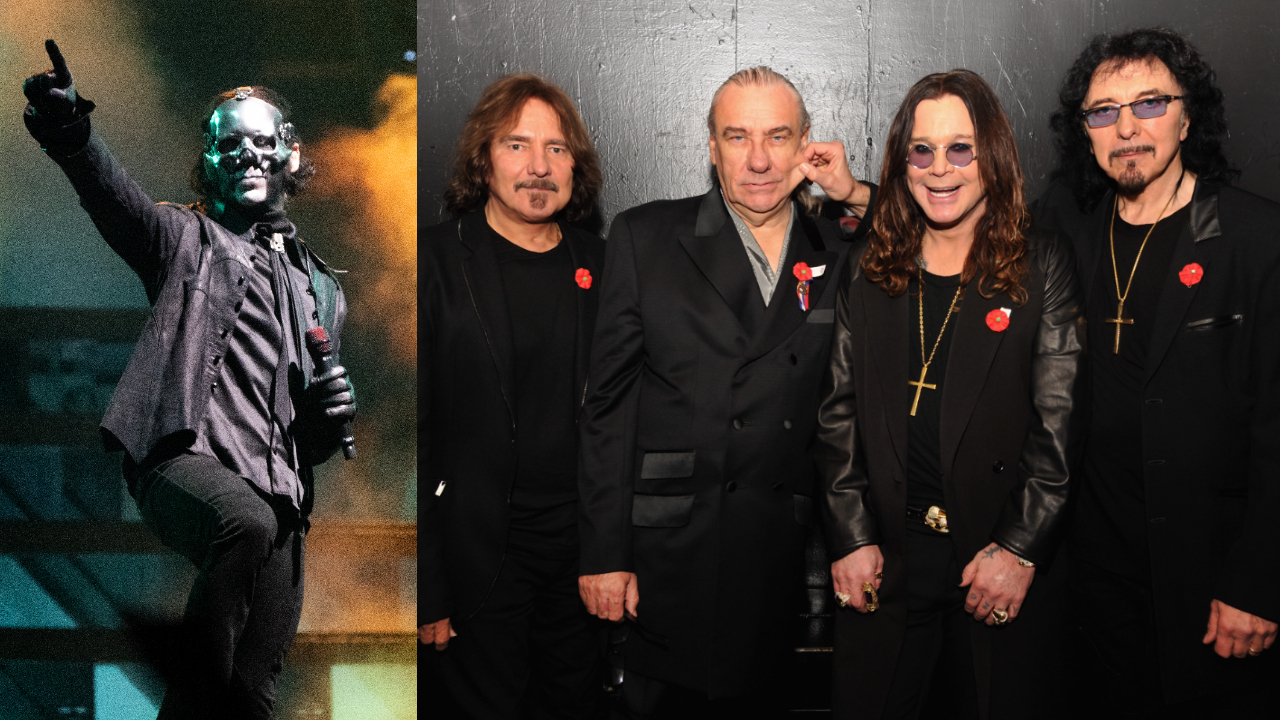The 20 greatest American metal bands ever
We count down the 20 greatest US metal bands of them all – as voted by you

Heavy metal as we know it may have been born in Birmingham, England at the end of the 1960s, but America turned it into the global superpower it is today. From the arena-filling giants of the 70s to the yin-and-yang thrash and glam metal scenes that ruled the 80s, and on through grunge, nu-metal and beyond, the US has helped shape every corner of the scene.
We wanted to know who the best American metal band of all was, so we decided to ask the experts – you. The ethos behind our poll was pretty simple: no band was exempt. No rules except may the very best band win. When it was all done we took the data, wrangled it into an enormous spreadsheet, and performed some complicated calculations. Now, the results, as they say, are very much in. Here are the 20 greatest Ameriican metal bands of them all, according to you.

20. Disturbed
Who would have guessed that the band who brought us The Sickness would end up on primetime TV and mainstream radio, two decades on?
In 2000, nu metal was reaching its peak, and clubs were full of Disturbed’s big hit. The Sickness was loud, offensive, and very, very sweary. They had a larger-than-life frontman in David Draiman, but behind his distinctive double chin piercings and chest-beating bravado was someone who could sing surprisingly well and brought his Jewish heritage to bear in their lyrics.
While critics rubbished Disturbed, David’s voice and the band’s slickly produced mainstream crunch have carried them through eight albums, only pausing for a hiatus between 2011-2015. That year, they released Immortalized, featuring a rousing version of Simon & Garfunkel’s The Sound Of Silence. It took them to mainstream American talk show Conan, and their video for the song has 600,000,000 views on YouTube.
Off the back of this, they released 2018’s Evolution – half metal songs, half ballads. And, shock horror, David removed those “pieces” in his chin. For those who wrote them off early on, David Draiman and co are having the last laugh. How they evolve now is anyone’s guess, but it’s sure to result in success.
19. Type O Negative
Crediting both Black Sabbath and the Beatles as musical influences, Peter Steele channeled the old-school horror sensibilities of Sabbath and the gothic rock of the 80s into expertly crafted, infectiously-catchy Beatles-shaped metal hooks. Add into that his often darkly comical lyrics, and you have his template for pioneering gothic metallers Type O Negative.
Sign up below to get the latest from Metal Hammer, plus exclusive special offers, direct to your inbox!
Emerging in the early 90s and nicknamed ‘the Drab Four’ – an homage to The Beatles’ ‘Fab Four’ – Type O’s lyrics focused on goth cliches: love, sex and death. With his brooding baritone and demonic stage presence (the singer was six foot, eight inches tall) Steele was a far cry from the scrawny, androgynous goth frontmen of the previous decade.
It made him quite the sex icon. Following the release of ‘93 breakout album Bloody Kisses – which subsequently went platinum – he even appeared as a centrefold in a 1995 issue of Playgirl magazine.
Described as generous, kind and funny, the frontman badly struggled with his mental health, and would often self medicate with alcohol and, later, cocaine. Many of his struggles are recorded within his lyrics, particularly the 1999 album Word Coming Down where he recounts his experience with psychiatric treatment.
In 2010, aged 48, Steele died from an aortic aneurysm – and Type-O Negative were laid to rest, too. As bandmate Johnny Kelly said: “When Peter died, Type O Negative died with him." However, with seven studio albums and a whole catalogue of contagious tracks, both Steele and Type O Negative achieved nothing short of immortality.
18. Rage Against The Machine
“Fuck you I won’t do what you tell me!” remain, arguably, the most memorable and powerful lyrics in all of 90s metal.
While contemporary music has often flirted with politics, from the anti-war psalms of 60s hippie America to the government backlashes of the early 70s London Punk scene, there have perhaps been none more visceral in their scathing takedowns than LA’s incendiary guerillas, Rage Against The Machine.
United by a desire to spur positive social change, RATM was formed in 1990 by vocalist Zach De La Rocha, guitarist Tom Morello, bassist Tim Commerford and drummer Brad Wilk. They quickly developed a hard-hitting alt-rock sound that fused together components of hip hop and heavy metal.
Distinguished by Morello’s unique guitar style and De La Rocha’s direct high-pitched rap, the band released their self-titled debut in 1992, which featured both the controversial self-immolation of a Tibetan monk on the cover and their police-corruption anthem, Killing In The Name. Rage enjoyed a number of commercial successes with follow up albums – Evil Empire (1996) and The Battle of Los Angeles (1999) – eventually coming to a head in 2000 when the band staged a concert outside the Democratic National Convention in Los Angeles, a stunt in which fans came to riotous blows with the LAPD.
De La Rocha soon departed while the remaining members formed Audioslave with former Soundgarden vocalist, Chris Cornell. A reunion followed, only to dissipate again, before members joined forces with members of Cypress Hill and Public Enemy to form Prophets Of Rage. Perhaps drawn back by the current climate of political unrest, they announced a second reunion in 2019 and an appearance at UK’s Reading festival awaits.
17. Linkin Park
Spawned from a time when spiky red hair, parachute jeans, band hoodies and shouting at our parents were all the rage, the out-of-the-gates success of Hybrid Theory made Linkin Park a household name from the start. The album's success set the band off on a creative roll that would see it become one of the biggest selling rock albums of the past 20 years.
Was it metal? Well, you couldn’t put them on at Wacken, that was for sure. It was definitely the closest to pop music that metal had ever dared stray at that point – of course, Bring Me The Horizon have since taken that crown, even given Linkin Park's forays into pure pop in 2017 – but to deny the power the songs Linkin Park created in their prime had to a generation of socially misplaced teens would be, at best, churlish.
From their nu metal roots they grew, matured, adapted and became one of modern rock's most important bands. That trajectory was tragically cut short in 2017 when vocalist Chester Bennington died by suicide. The band have been weighing up their future ever since, but this year they announced 2020 will be dedicated to celebrating 20 years of Hybrid Theory and the legacy they created since its release.
16. Alice In Chains
Emerging out of the early 90s Seattle scene, Alice In Chains never quite fit in with their contemporaries. Their unique metallic-tinged grunge, bleak lyrical content and distinctive harmonised vocals – provided by Jerry Cantrell and Layne Staley – struck a chord with rock fans far and wide.
Along with Nirvana, Soundgarden and Pearl Jam, they forged their way as one of the grunge movement’s Big Four. It was their debut album Facelift that made a dent in the mainstream music world and took the Seattle sound to the masses, all thanks to unexpected hit single Man In The Box.
But by the recording of follow up Dirt, Layne Staley – who'd struggled with the realities of fame – was battling with a drug addiction that he’d never recover from. After a final public appearance on MTV’s Unplugged in 1996, the singer retreated entirely. The band never split, but remained on hiatus until Layne’s death from a heroin overdose in 2012 .
Despite this tragedy, the band made a comeback. Acknowledging there was no replacing Staley, they enlisted a new singer who didn’t attempt to imitate the iconic late frontman, William DuVall, and embarked on a successful run of gigs. In 2009, the band released Black Gives Way To Blue – a record which promptly debuted at number five on the Billboard 200. With their latest album, 2018’s Rainier Fog, it’s clear that, even thirty years on, there’s no stopping Alice.
15. Mastodon
Since they emerged with their primal debut, Remission, Mastodon have earned their reputation as one of metal’s most cerebral, inventive and crushing bands.
Knowing where to start with the Atlantean four-piece is a tricky question. Over the last 20 years, they’ve revealed their many faces, the perfect blend of brains and brawn, straddling the barbed wire boundary between blistering metal and densely technical prog.
Whether they’re in full beast mode, roaring about ‘white whales’ (2004’s Leviathan) and bellowing Kracken-raising hell anthems (2006’s Blood Mountain), or pickling our minds with batshit concepts about astral travel (2009’s Crack The Skye) and issuing straight-to-the-jugular gut punchers (2011’s The Hunter and 2014’s Once More Around The Sun), it’s been an dizzying ride.
Their last album, 2017’s Emperor Of Sand, was a return to their prog roots, with a storyline that featured “a desert-like version of the Grim Reaper” and turned their looking glass inward, focusing on real-life trauma and pain to create their best album yet. That year, Metal Hammer crowned in the Critics Choice Album Of The Year, calling it a “masterpiece of contemporary, heavy music”, proof that two decades into their career, Mastodon are still worlds ahead of their nearest competition.
14. Avenged Sevenfold
“At times, we’ve obviously worn our influences heavily on our sleeve,” Avenged Sevenfold guitarist Zacky Vengeance once opined to Metal Hammer. “But we’ve also done a lot of stuff completely outside of the box – I think that’s what we’ll always be remembered for.”
Perhaps the biggest injustice Orange County’s most significant metal band have suffered is that even now, two decades after they first came out swinging from the underbelly of the Cali punk scene, they are still seen by some as a ‘basic bitch’ metal band, plodding along plying wrestle-metal to knuckle-draggers.
And yet, the reality is so far removed from that. The fact is, no metal band to have broken in the 21st century has evolved and added as many strings to their bow in the process as Avenged have, morphing from melodic metalcore to a sneering rock ‘n’ roll to stadium metal to, yes, prog rock along the way. Despite being targeted again and again by the metal scene’s more elitist quarters, they’ve sailed onwards and upwards, growing into one of our world’s single biggest bands along the way. And the best thing of all? They’ve done it all entirely on their own terms. As all great bands should.
13. Korn
Not many bands can say with any degree of certainty that they are genuinely responsible for altering the path that heavy metal has taken as a genre. Korn are one that absolutely and categorically can.
Their 1994 self-titled debut is a moment that put the handbrake on heavy music and ushered in a complete shift in direction. Borrowing from Helmet’s alt-metal and downtuned riffs, hip-hop's looped, syncopated grooves, and the gothic introspection and darkness of a band like The Cure, it was the blueprint for the nu-metal scene that dominated the rest of the 90s.
Copied but never bettered, if the Korn story ended there it would be enough to assure their place on this list. The fact that the band are still going strong, having released one of their best ever albums – 2019’s The Nothing – 25 years on, says everything about the daring ambition of Korn. Whether it was embracing dubstep on the divisive, but actually banging The Path Of Totality, or moving the goalposts once again for a scene that was shamelessly syphoning from their trademark sound on third album Follow The Leader, Korn have continually tried to explore as many sonic avenues as they can during a truly fascinating career.
12. Guns N’ Roses
At the height of their popularity, Guns N' Roses were referred to as ‘The Most Dangerous Band In The World’. Arriving at a time when bland dance and ten-a-penny pop dominated the charts, Guns N’ Roses were like a whirlwind of thrilling, drug-fuelled hedonism when they first came to prominence. That was in 1987, with the release of Appetite For Destruction: arguably one of the greatest debut albums – not to mention one of the greatest rock albums – of all time.
Capable of incendiary live shows, these five young rock brats really did walk it like they talked it. Tales of debauchery surrounded them, and those close enough knew it wasn’t just hype. They were the new saviours of metal, touring with Aerosmith and Mötley Crüe.
The first signs things might go awry came with the release of GN’R Lies, not least with the wildly misjudged One In A Million – listen back to those lyrics now and try not to wince. Then drummer Steven Adler was fired for – amazingly – taking too many drugs. Then the long-awaited follow-up to Appetite…, Use Your Illusion, arrived as two separate volumes, hinting at overblown and indulgent ideas. Guitarist Stradlin left, replaced by Gilby Clarke, and a tour with Metallica cemented the band's reputation as an unpredictable controversy machine.
Still, they persevered – but not before their their creative output ground to a halt for 15 years following the release of 1993's punk covers album The Spaghetti Incident. Cut to the present day and the band are still out on the road with their Not In This Lifetime tour. Rumours of new material have circulated since their reunion, but in May 2019, Slash confirmed that work on a new album was underway. Whether or not it'll be another 15 year wait is anyone's guess.
11. Dio
Of all the legendary heavy metal singers, Ronnie James Dio was the greatest of them all.
Born Ronald James Padavona on July 10, 1942 in Portsmouth, New Hampshire, he fronted a holy trinity of iconic bands – Rainbow, Black Sabbath and Dio.
He was first introduced to the world stage in 1975 when he and three fellow members of the group Elf were absorbed into former Deep Purple guitarist Ritchie Blackmore’s Rainbow. But by 1978, Dio was out as Blackmore remodelled Rainbow as a mainstream radio-rock act.
Within a year, he'd joined Black Sabbath, replacing the sacked Ozzy Osbourne. It was a controversial move: Ozzy was the people’s champion, Dio dismissed by one critic as a “standard American chest-beater”. But Dio wasn’t intimidated. His masterful performance on Sabbath’s Heaven And Hell rejuvenated a band that had been dying on its arse. It didn’t last, of course. A farcical feud over the mixing of the in-concert double Live Evil led to Dio quitting Sabbath and forming a new band in his own name.
The first Dio album, Holy Diver, was released in 1983 to universal acclaim. He went on to make another nine studio albums under the Dio name, plus the Sabbath reunion album Dehumanizer in 1992, and the Heaven & Hell album The Devil You Know in 2009.
- RELATED READING: the 10 most American songs ever
- 1
- 2
Current page: The 20 Greatest American Metal Bands Ever
Next Page The 20 Greatest American Metal Bands EverFounded in 1983, Metal Hammer is the global home of all things heavy. We have breaking news, exclusive interviews with the biggest bands and names in metal, rock, hardcore, grunge and beyond, expert reviews of the lastest releases and unrivalled insider access to metal's most exciting new scenes and movements. No matter what you're into – be it heavy metal, punk, hardcore, grunge, alternative, goth, industrial, djent or the stuff so bizarre it defies classification – you'll find it all here, backed by the best writers in our game.

